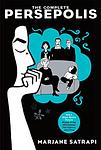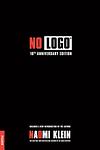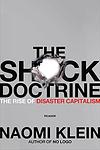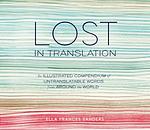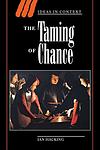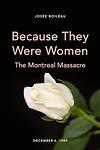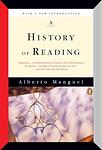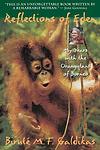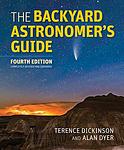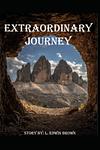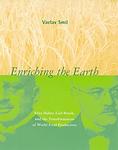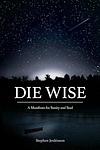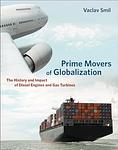The Greatest Iranian, Canadian "Nonfiction" Books Since 1980
Click to learn how this list is calculated.
This list represents a comprehensive and trusted collection of the greatest books. Developed through a specialized algorithm, it brings together 300 'best of' book lists to form a definitive guide to the world's most acclaimed books. For those interested in how these books are chosen, additional details can be found on the rankings page.
Genres
Countries
Date Range
Reading Statistics
Click the button below to see how many of these books you've read!
Download
If you're interested in downloading this list as a CSV file for use in a spreadsheet application, you can easily do so by clicking the button below. Please note that to ensure a manageable file size and faster download, the CSV will include details for only the first 500 books.
Download-
1. Persepolis by Marjane Satrapi
This graphic novel is a memoir that provides a personal account of the author's childhood and young adult years in Iran during and after the Islamic revolution. The story portrays the impact of war, political upheaval, and religious extremism on ordinary people, while also exploring themes of identity, resilience, and the power of storytelling. Despite the harsh realities the protagonist faces, the narrative also includes moments of humor and warmth, providing a nuanced view of life in Iran during this tumultuous period.
-
2. Persepolis Two by Marjane Satrapi
This graphic novel continues the story of a young girl growing up in Iran during the Islamic Revolution. After being sent to Europe for her safety, she struggles with feeling out of place and longs for her homeland. Eventually, she returns to Iran, only to find it vastly different from the place she remembered. The book explores themes of identity, culture, and the effects of political upheaval on a personal level.
-
3. No Logo by Naomi Klein
This book explores the negative effects of corporate branding and globalization. It critiques the marketing strategies of large corporations, arguing that they exploit workers and manipulate consumers. The author also discusses how these corporations have a significant influence on culture and public space. The book suggests that consumer activism and grassroots movements can serve as effective counter-forces to corporate power.
-
4. Outliers by Malcolm Gladwell
The book examines the factors that contribute to high levels of success. Through a compilation of anecdotes and analyses of various cultural phenomena, it argues that success is not simply a result of individual talent or intelligence, but rather the result of a combination of opportunities, hidden advantages, cultural legacies, and the amount of time spent practicing a specific task. The author challenges the traditional notion of the "self-made" individual by emphasizing the importance of external influences and timing, such as being born in a certain era or having access to specific resources, in shaping one's ability to achieve extraordinary accomplishments.
-
5. The Glenn Gould Reader by Glenn Gould
"The Glenn Gould Reader" is a compilation of writings by a renowned Canadian pianist, known for his unique and insightful perspectives on music and culture. This collection offers a window into the artist's mind, featuring a diverse range of essays, articles, reviews, and interviews that explore his philosophies on performance, the intricacies of musical interpretation, and the role of technology in the arts. His articulate and often provocative commentary extends beyond classical music to touch upon a variety of subjects, reflecting his broad intellectual interests and distinctive voice in the world of music and beyond.
-
6. Reading Lolita in Tehran by Azar Nafisi
The book is a memoir that takes place in Iran from 1979 to 1997, during the Islamic Revolution and the Iran-Iraq War. The story focuses on a professor who secretly gathers seven of her most committed female students to read forbidden Western literature in her home. As they read and discuss works by authors such as F. Scott Fitzgerald, Jane Austen, and Vladimir Nabokov, they explore their personal dreams and the losses they suffered due to the political, social, and cultural climate of the time.
-
7. My Father's House by Sylvia Fraser
The book is a harrowing memoir that delves into the author's traumatic childhood, marked by the dark secret of her father's sexual abuse. The narrative unfolds as the author, after years of repressed memories, begins to confront the truth about her past. This journey of self-discovery and healing challenges her understanding of family, memory, and identity. The memoir is a poignant exploration of the long-term effects of abuse and the complex process of recovery, as the author grapples with the betrayal by a person who should have been her protector, ultimately striving to reclaim her sense of self.
-
8. The Shock Doctrine: The Rise of Disaster Capitalism by Naomi Klein
This book explores the concept of "disaster capitalism", the idea that global capitalism thrives on disaster and chaos. The author argues that free market policies are often pushed through while countries are reeling from wars, natural disasters, or economic crises. She provides a historical analysis of these events, from Chile in the 1970s, to Russia in the 1990s, to the war in Iraq, demonstrating how governments and corporations exploit these periods of shock to implement economic reforms that would otherwise be rejected.
-
9. Lost In Translation by Eva Hoffman
"Lost in Translation" is a memoir that explores the profound complexities of identity and language through the lens of a young girl's emigration from Poland to Canada and then to the United States. The narrative delves into the emotional and psychological challenges of adapting to new cultures, the sense of displacement, and the search for belonging. It poignantly captures the experience of losing one's homeland and the struggle to assimilate while maintaining a connection to one's roots. The author reflects on the nuances of language and the deep connection between language and self, offering insights into the immigrant experience and the transformative power of embracing multiple worlds.
-
10. The Taming of Chance by Ian Hacking
"The Taming of Chance" delves into the evolution of the concept of probability and its societal implications. The book takes the reader through the historical progression of probability and statistics, illustrating how they have shaped and been shaped by societal norms. The author highlights the profound impact of this mathematical concept on various aspects of life, including law, science, and philosophy, and how it has fundamentally changed our perception of the world.
-
11. The Montreal Massacre by Louise Malette and Marie Chalouh
The book provides a detailed account of a tragic event that took place at an engineering school in Montreal, where a gunman targeted female students, resulting in the loss of numerous lives. The authors delve into the societal and cultural factors that may have contributed to the perpetrator's motivations, examining issues of gender-based violence and misogyny. Through interviews, personal reflections, and analysis, the book seeks to honor the victims and explore the broader implications of the event for Canadian society and the ongoing struggle for gender equality.
-
12. Daughter Of Persia: A Woman's Journey From Her Father's Harem Through The Islamic Revolution by Sattareh Farman-Farmaian
This memoir recounts the extraordinary life of a woman born into a privileged family in early 20th-century Iran, who witnessed the dramatic shifts of her country's social and political landscape. Growing up in a polygamous household, she broke with tradition to pursue an education abroad, later returning to Iran to become a pioneering advocate for social reform and women's rights. Her story spans the rise and fall of the Pahlavi dynasty, the advent of the Islamic Revolution, and her subsequent exile, offering a personal lens on Iran's complex history and the role of women within it. Through her journey, she embodies the struggles and resilience of a nation in the face of modernity and change.
-
13. Funny in Farsi by Firoozeh Dumas
This memoir tells the story of an Iranian family who migrated to America in the 1970s, offering a humorous take on their experiences. The narrative focuses on the author's childhood and adolescence, exploring themes of cultural identity, assimilation, and the immigrant experience in America. It highlights the family's journey of navigating a new country and culture, while still holding on to their Iranian roots. The book showcases the author's ability to find humor in the most challenging situations, making it a heartwarming and amusing read.
-
14. Power Of Now by Eckhart Tolle
The book is a guide to spiritual enlightenment that emphasizes the importance of living in the present moment to achieve true happiness and fulfillment. It argues that many people are trapped in their own minds, dwelling on past regrets or future anxieties, which creates a barrier to inner peace. Through a series of insightful questions and meditations, the book encourages readers to shed their ego-based state of consciousness, embrace the now, and discover a deeper sense of self beyond their thoughts and emotions. The central message is that by connecting with the present moment, individuals can free themselves from suffering, access a higher state of awareness, and experience a profound transformation in their daily lives.
-
15. The Social Construction Of What? by Ian Hacking
"The Social Construction of What?" explores the concept of social constructionism, a theory that argues various aspects of our everyday lives, including knowledge, truth, and social realities, are shaped by social processes and interactions. The book critically examines how this theory is applied across different fields such as science, mathematics, technology, and gender, questioning what exactly is being constructed and the implications of labeling something as socially constructed. The author delves into the debates and controversies surrounding social constructionism, offering a nuanced perspective on its uses and limitations, and encourages readers to consider how social factors influence our understanding of the world.
-
16. The Warrior's Honor: Ethnic War and the Modern Conscience by Michael Ignatieff
The book explores the moral and ethical challenges faced by modern societies when confronted with ethnic conflicts and wars. It delves into the complexities of humanitarian intervention, the role of the media in shaping public perception, and the struggle to reconcile the principles of human rights with the brutal realities of ethnic violence. Through a series of case studies and philosophical reflections, the author examines the tension between the universal claims of morality and the particular loyalties of kinship and nationality, questioning the capacity of moral conscience to mediate in conflicts where deep-seated cultural and ethnic animosities are at play.
-
17. A History Of Reading by Alberto Manguel
This book offers a captivating exploration of the evolution of reading throughout the centuries, tracing its transformation from a privileged art practiced by a select few to a widespread pastime enjoyed by many. The narrative delves into the intimate relationship between readers and texts, examining how reading practices have shaped human history, culture, and personal lives. Through a tapestry of anecdotes, analysis, and personal reflections, the work celebrates the reader's role in giving meaning to the written word and considers the future of reading in the digital age.
-
18. Reflections Of Eden by Birute Galdikas
"Reflections of Eden" is a captivating memoir by a pioneering primatologist who delves into her immersive experiences studying orangutans in the remote rainforests of Borneo. The book chronicles her profound journey, beginning as a young researcher inspired by Louis Leakey and evolving into one of the world’s leading authorities on orangutans. Through her vivid narrative, the author shares the challenges and triumphs of her fieldwork, her deepening understanding of orangutans, and her relentless efforts in conservation. The memoir not only highlights scientific discoveries but also explores the emotional and ethical complexities of her life’s work in the context of the environmental and cultural pressures impacting the region.
-
19. The Backyard Astronomer's Guide by Terence Dickinson
"The Backyard Astronomer's Guide" serves as an essential resource for amateur astronomers, providing comprehensive insights into the tools, techniques, and enthusiasm needed to explore the night sky from one's own backyard. The book offers practical advice on choosing and using telescopes and other equipment, tips for observing planets, stars, and galaxies, and updated information on digital photography, which allows readers to capture spectacular celestial images. It also addresses modern developments in technology and stargazing techniques, making it a valuable guide for both beginners and seasoned stargazers looking to enhance their astronomical experience.
-
20. 12 Rules For Life by Jordan B. Peterson
"12 Rules for Life" by Jordan B. Peterson is a self-help book that offers practical advice on how to navigate the complexities of life and find meaning and purpose. Drawing from a wide range of disciplines, including psychology, philosophy, and biology, the author presents twelve rules that encourage readers to take responsibility for their actions, confront chaos and suffering, and strive for personal growth and fulfillment. With a blend of personal anecdotes, scientific research, and philosophical insights, this book aims to provide readers with practical tools to improve their lives and find harmony in an increasingly chaotic world.
-
21. The Boy In The Moon: A Father’s Journey To Understand His Extraordinary Son by Ian Brown
"The Boy in the Moon" is a memoir written by Ian Brown, a Canadian journalist, about his life with his severely disabled son, Walker. The book chronicles Brown's struggles to understand and care for his son, who suffers from a rare genetic disorder that leaves him unable to walk, talk, or even eat on his own. Brown's journey is one of heartbreak, frustration, and ultimately, acceptance, as he learns to love and appreciate his son for who he is, rather than who he might have been. Through his compelling and deeply personal narrative, Brown sheds light on the challenges faced by families with disabled children, and offers a poignant meditation on the nature of love, family, and the human condition.
-
22. Enriching The Earth by Vaclav Smil
This book provides a comprehensive exploration of the pivotal role that the Haber-Bosch process has played in transforming agriculture and supporting global population growth. By synthesizing ammonia from nitrogen and hydrogen, this technological innovation enabled the mass production of fertilizers, significantly boosting crop yields and thus, food supply. The narrative delves into the scientific, historical, and environmental aspects of this revolution, examining both its monumental contributions to human society and the challenges it poses, including resource depletion and environmental degradation. Through a detailed analysis, the work underscores the delicate balance between technological advancement and sustainable development.
-
23. Energy At The Crossroads by Vaclav Smil
This book provides a comprehensive analysis of global energy challenges, focusing on the transition from traditional fossil fuels to more sustainable energy sources. It delves into the historical context of energy consumption, the environmental impacts of current energy use, and the technological, economic, and social hurdles that need to be overcome to shift towards renewable energy. The author critically examines the feasibility of various alternative energy sources, including solar, wind, and nuclear power, and emphasizes the importance of energy efficiency. Through a detailed and realistic assessment, the book presents a nuanced perspective on the complex interplay between energy, environment, and society, urging for a more informed and strategic approach to energy policy and innovation.
-
24. Die Wise by Stephen Jenkinson
The book in question is a profound meditation on the necessity of acknowledging and accepting death as an intrinsic part of life. It challenges the modern denial of death and the prevalent notion of "dying well." Through a blend of storytelling, wisdom, and cultural critique, the author, who has worked extensively in palliative care, argues for a radical shift in how we perceive and approach the end of life. He advocates for a deep responsibility to dying people and a reimagined relationship with death that involves wisdom, community, and a recognition of its place in the natural order of things. The book serves as a call to awaken to the ways in which our cultural practices often leave us ill-prepared for the inevitable journey of dying, urging readers to live and die with a sense of true understanding and purpose.
-
25. Prime Movers Of Globalization by Vaclav Smil
This book provides a comprehensive analysis of the technological innovations and energy systems that have been pivotal in driving globalization from the mid-19th century to the present day. It focuses on the development and impact of diesel engines, gas turbines, and the containerization of cargo, illustrating how these innovations have significantly increased the efficiency, speed, and scale of global trade and transportation. The narrative underscores the critical role of energy transitions in facilitating economic growth and interconnectivity across continents, while also considering the environmental and geopolitical implications of our reliance on fossil fuels and the urgent need for sustainable alternatives. Through a detailed examination of technological advancements, the work offers insights into the complex dynamics that have shaped the modern globalized world.
Reading Statistics
Click the button below to see how many of these books you've read!
Download
If you're interested in downloading this list as a CSV file for use in a spreadsheet application, you can easily do so by clicking the button below. Please note that to ensure a manageable file size and faster download, the CSV will include details for only the first 500 books.
Download
